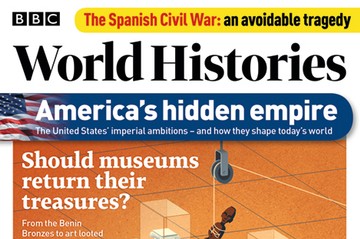A BBC Radio 4 series, Spain’s Lost Generations, looks
at the ongoing legacy of Spain’s civil war and dictatorship. Matt Elton spoke to its presenter, Lucas Laursen
Which groups of people does this series deal with, and what happened to them?
Our series deals with people killed or otherwise disappeared during the Spanish Civil War and the subsequent dictatorship. More than 100,000 men and women are still missing. One episode focuses on people executed by Franco’s regime, and on the families who are only in the past decade or so recovering those remains from mass graves. The other is about people affected by the state-initiated theft of babies, which started during the war and continued through the early years of democracy. In some cases these people are now beginning to recover their identities and their families.
How did you find out about their stories?
Thanks to a growing civil society movement that began in the early 2000s, more Spaniards are learning where their lost loved ones are buried – or, in the case of some stolen babies, where they are now living. More than 8,000 bodies have been recovered from mass graves since the first exhumation in 2000, and we followed several families we met via those organisations through different stages of their journeys of recovery.
We recorded at a ceremony in Guadalajara, during which the organisation returned the remains of 22 people to living relatives. Unfortunately, I know of far fewer reunions of families with stolen babies, but we tried to follow some of those threads, too, and I suspect we’ll hear about more those in the future.
Are there any cases you found particularly striking or moving?
The most moving moments for me came when I met people who had lost family members. Some had been children during the war, while others had lost babies at the same Madrid hospital where my daughter was born. Meeting these people in person helped me experience how the human toll of the Spanish Civil War and the subsequent dictatorship and the healing it needs are still unfinished.
What do these stories tell us about the wider legacy of the civil war?
I hope listeners will hear just how unfinished that business is. We spoke with government bureaucrats and policymakers, activists and legal experts, each with their own prescription for healing. The generation of people doing the recovering isn’t composed of those who survived the war or lived under the dictatorship, but the generation afterwards. That taught me something about how slow people are to overcome fear, and how slow democracies are to take root. Perhaps, after hearing these voices, listeners will have their own ideas about what it takes to mend a rift like Spain’s – and how important it is to avoid them in the first place.
First published by BBC World Histories: [pdf].
Listen to the radio documentaries for BBC Radio 4 here: Franco’s Disappeared and The Missing Children.
